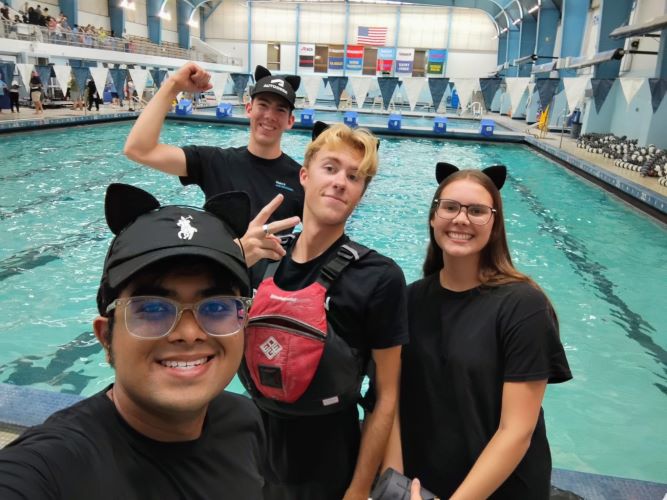Your introduction to the people, projects, and possibilities of engineering at URI
EGR 105 is more than just a class – it’s your launchpad into the world of engineering. Designed specifically for first-year students, this one-credit seminar introduces you to the College of Engineering, helps you explore all eight engineering disciplines, and connects you to the resources, faculty, and opportunities that will shape your journey.
What to Expect
Through weekly large-group sessions and smaller, faculty-led sections, you’ll explore each of the eight engineering disciplines, hear directly from faculty and industry professionals, and begin building the skills every engineer needs, like using Excel for analysis and working effectively in teams.
You’ll take on fun and challenging design projects, including the unforgettable Cardboard Boat Design Challenge, and learn how to make the most of your time at URI through sessions on academic advising, student organizations, career planning, and undergraduate research. By the end of the semester, you’ll have a better sense of where you want to go and how to get there.
Course Structure
Large-Group Sessions – Every week, all EGR 105 students come together for a session featuring guest speakers and presentations. This is where you’ll hear from the Dean, engineering professionals, and learn about each engineering discipline.
- When: Wednesdays at 4 p.m.
- Where: Edwards Auditorium
Small Faculty-Led Sections – These smaller groups focus on active learning and skill-building. Here, you’ll collaborate on projects like the Cardboard Boat Design Challenge, learn essential tools like Excel for data analysis and engineering applications, and receive guidance on academic advising and course planning.
- When/Where: Scheduled separately (check e-Campus for details about your section)

